Burkina Faso: What price dignity?
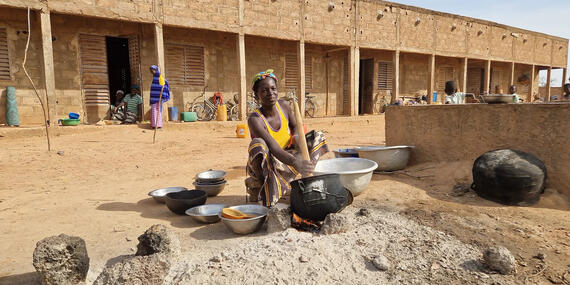
By Bénédicte Bama Toé
“Of the 37 villages in the Boulsa commune, fewer than 10 still exist.”
This distressing assessment* was shared by Adama, the High Commissioner for Namentenga Province, in Burkina Faso’s Centre-Nord region.
Boulsa city is now the reception centre for people who left most of the surrounding villages due to blockades (Bouroum, Zeguedin), access difficulties caused by poor road conditions (Nadbingou, Yalgho), and a lack of access to basic services (Boala, Dargo, Tougouri).
By 30 March 2023, Burkina Faso’s National Council for Emergency Relief and Rehabilitation had registered around 3,500 people displaced from surrounding villages and now living in Boulsa city. Since then, more than 50,000 additional displaced people have arrived in the city, according to the council’s Director of Humanitarian Action.
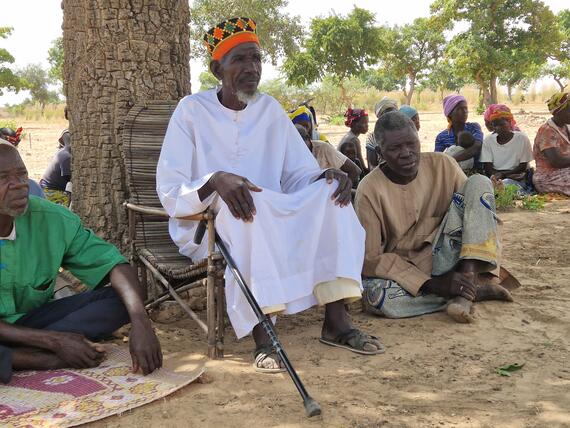
“We wait for nightfall to shower.”
Boulsa still struggles to accommodate new arrivals. As the city has no sites for displaced people, they find shelter in administrative buildings and schools. A minority live with host families.
This difficult situation worries the city's prefect, who explains that the administrative authorities are acquiring land to set up temporary shelters. Landowners have agreed to provide around 10 hectares.
Harouna is the President of the Boulsa special delegation (the equivalent of a mayor under the country’s transitional Government). He explains:
“We hope to receive support from humanitarian partners to provide tents and adequate facilities and turn this [land] into a reception site.”
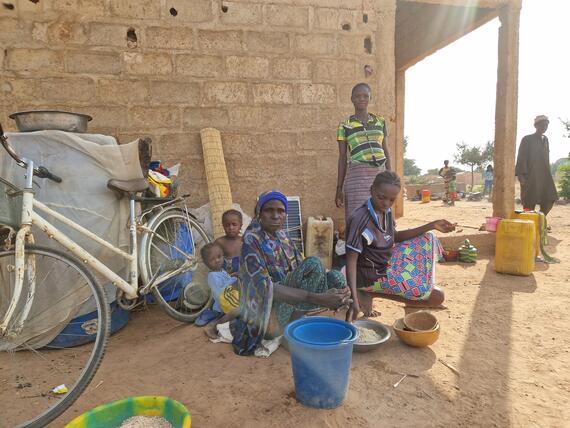
Schools become shelters
A few schools on the outskirts of the city are still used as shelters for displaced people. These are private schools whose administrators agreed to provide the space temporarily. Displaced people occupy classrooms by village and gender.
“We know we shouldn't be here, but we have nowhere else to go,” explains Koudougou, who lives in one of the schools.
He and his family arrived in Boulsa nine months ago after leaving Bogo, Lilougou and Penbaga villages.
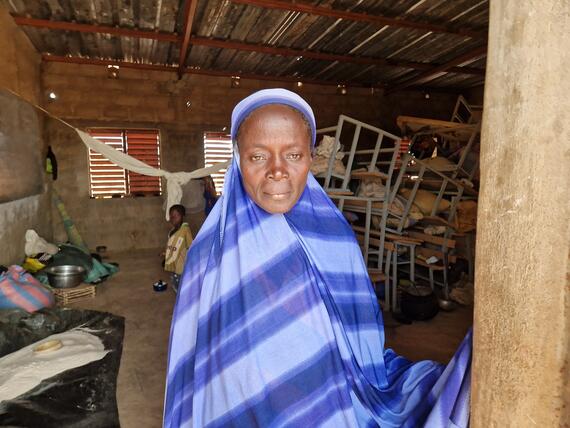
Twenty-two public schools in Boulsa are closed due to security incidents, and 15 remain open. There are 1,800 internally displaced pupils in the commune. In some schools housing displaced people, the classrooms are dedicated to those who need shelter. But in other schools the classrooms are used to teach schoolchildren during the day and house displaced people at night.
Boureima, the Principal of Boulsa B school, said that although the situation is difficult and affecting the commune’s education system, the teachers are doing their best to deliver classes, and “parents and pupils care about the school.”
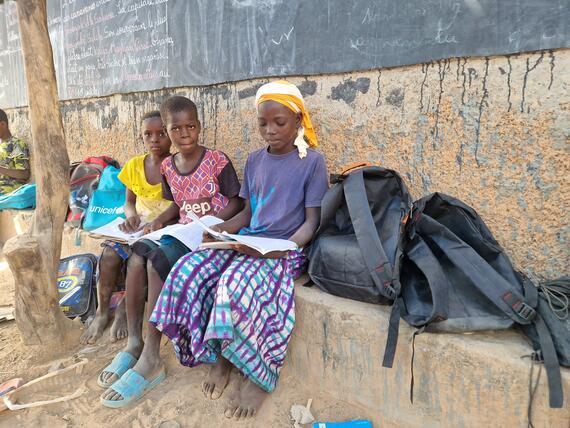
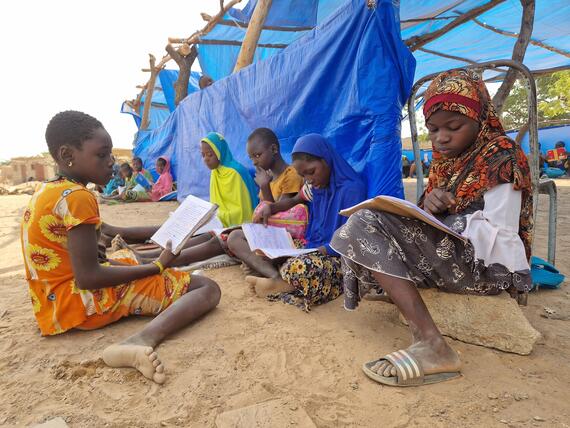
Coping with climate change
“If we don't start addressing the issue of food availability in the town now, we'll be left empty-handed,” warns Adama, the Province’s High Commissioner.
He explained that the rainy season ended badly, with 40 days of drought between mid-July and September 2023. “A lot of crops were lost during this period,” he says.
Adama’s fears are shared by Rimpasambda and his wife, Hado. The couple, in their sixties, were displaced from Boala village and have lived in Boulsa for a year. Fortunately, their host allowed them to pitch their tent on his plot.
“Our concern now is to find something to eat every day,” says Rimpasambda.
Hado was shelling the few peanuts she picked from her small vegetable garden in front of their temporary shelter. She explained:
“We can no longer grow and raise crops as we used to, and now the weather is unpredictable. Many of our crops didn't reach maturity because the rain stopped far too quickly. What are we going to eat in the end?”
Keeping hopes alive
A local association, Wend Kuuni, has made its land available to displaced people. It also enabled displaced youths to access a training institute for trades such as gardening, weaving, sewing and soap-making. After a nine-month apprenticeship, the students can integrate into the local economy.
But much remains to be done to give them decent housing, land to practice gardening, and access to water and other essentials.
Dieudonné, the association’s President, says:
"We act out of compassion, but that's not always enough. The communities need more assistance to keep their hopes alive and take charge of their lives."
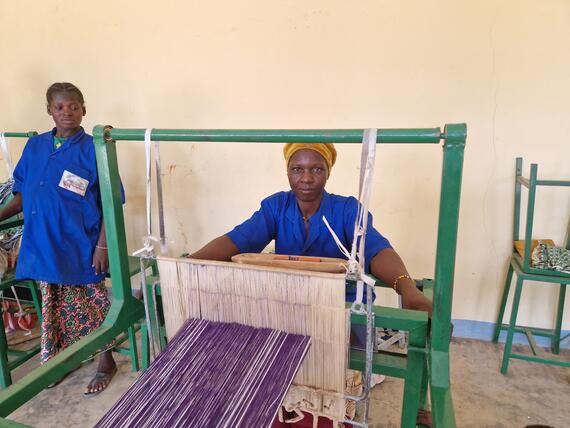
6.3 million people in need
The humanitarian community helped some 2.9 million people in 2023, but it estimates that 6.3 million people will need humanitarian assistance in Burkina Faso’s 13 regions this year. That’s a 35 per cent increase compared to 2023.
UNICEF received US$1.5 million from the Central Emergency Response Fund to provide water, sanitation, hygiene, protection and nutritional support to displaced people and host communities in Bogande, Boulsa, Kongoussi and Ouahigouya throughout 2024.
However, the 2023 Humanitarian Response Plan was only 35 per cent funded by the year’s end ($308 million of the $877 million requested). Additional resources are essential to save as many lives as possible this year.
***
This story was originally published in OCHA exposure.
